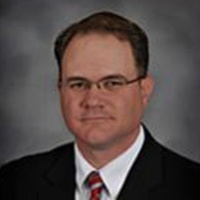Geauga County, OH White Collar Crime Lawyers
Sponsored Law Firm
-
 x
x

Click For More Info:
-
The Law Offices of Richard L. Cooper, P.A.
848 Brickell Avenue Suite 800 Miami, FL 33131» view mapDWI/DUI, Drug Trafficking, Felony Nationally Ranked Top 40 Under 40
With Richard L. Cooper you can expect a trusted confidant who will work diligently to fully understand your case and determine a road map to help you regain control of your life.
800-756-2781
Not enough matches for Geauga White Collar Crime lawyer.
Below are all Geauga lawyers.
Casey Patrick O'Brien
✓ VERIFIEDDivorce & Family Law, Family Law, Corporate, Personal Injury, Litigation
Mr. O'Brien received a Bachelor of Arts Degree from Walsh University and a Juris Doctor Degree from Cleveland-Marshall College of Law. Mr. O' Brien jo... (more)
Todd E. Petersen
Wrongful Death, Personal Injury, Medical Malpractice, Car Accident
Status: In Good Standing
FREE CONSULTATION
CONTACTFREE CONSULTATION
CONTACTStephan Voudris
Wrongful Termination, Sexual Harassment, Employment Discrimination, Employment, Lawsuit & Dispute
Status: In Good Standing Licensed: 33 Years
FREE CONSULTATION
CONTACTJustin Frederick Madden
Accident & Injury, Motor Vehicle, Business, Criminal, Nursing Home
Status: In Good Standing Licensed: 31 Years
Carly A. Ibold
Farms, Alimony & Spousal Support, Divorce, Child Support, Collection
Status: In Good Standing
Jeffrey Tod Orndorff
Landlord-Tenant, Family Law, Child Custody, Civil Rights
Status: In Good Standing Licensed: 52 Years
Gina M. Bevack-Ciani
Estate, Wills & Probate, Guardianships & Conservatorships, Trusts, Divorce & Family Law
Status: In Good Standing

 Richard L. Cooper Miami, FL
Richard L. Cooper Miami, FL AboutMiami Attorney at Law
AboutMiami Attorney at Law ServicesCriminal Defense
ServicesCriminal Defense

